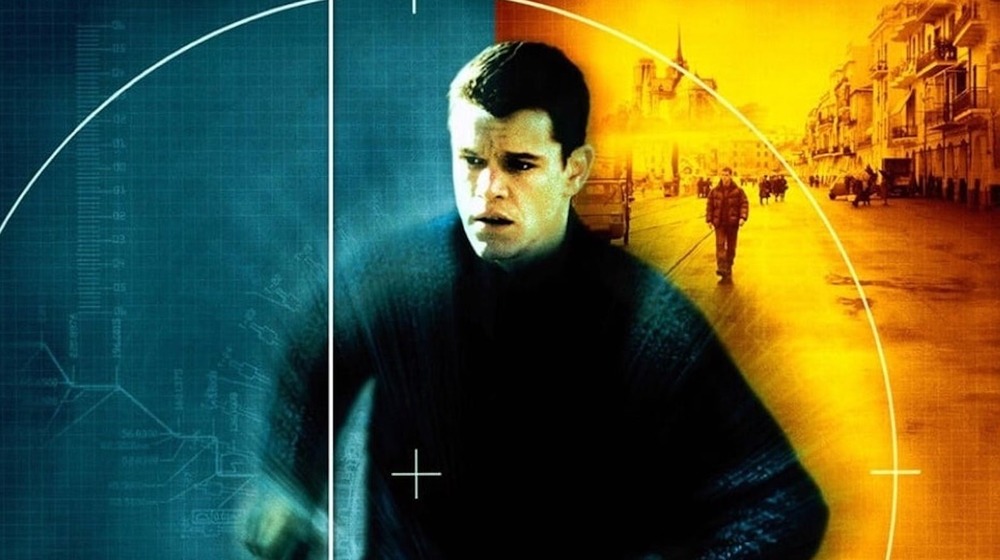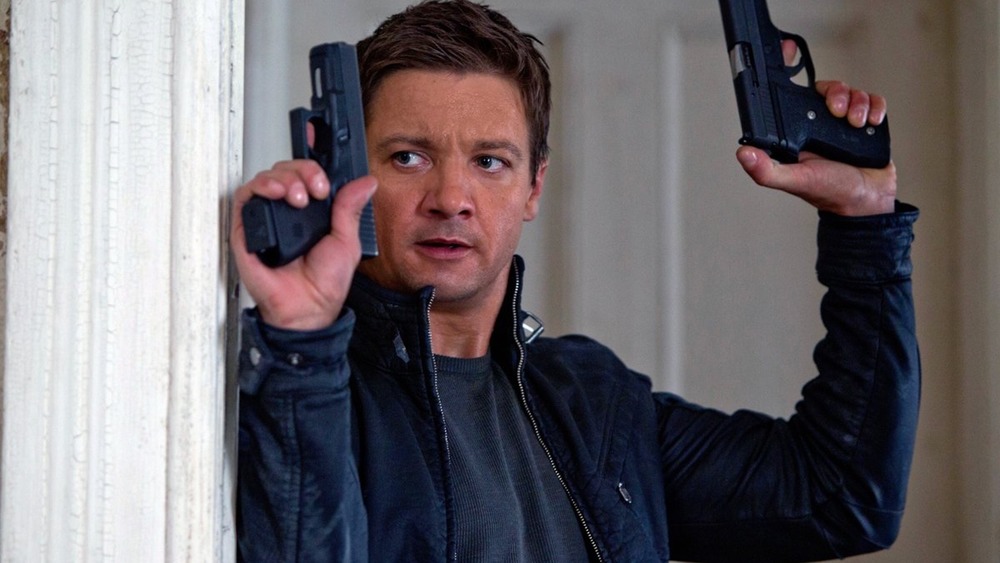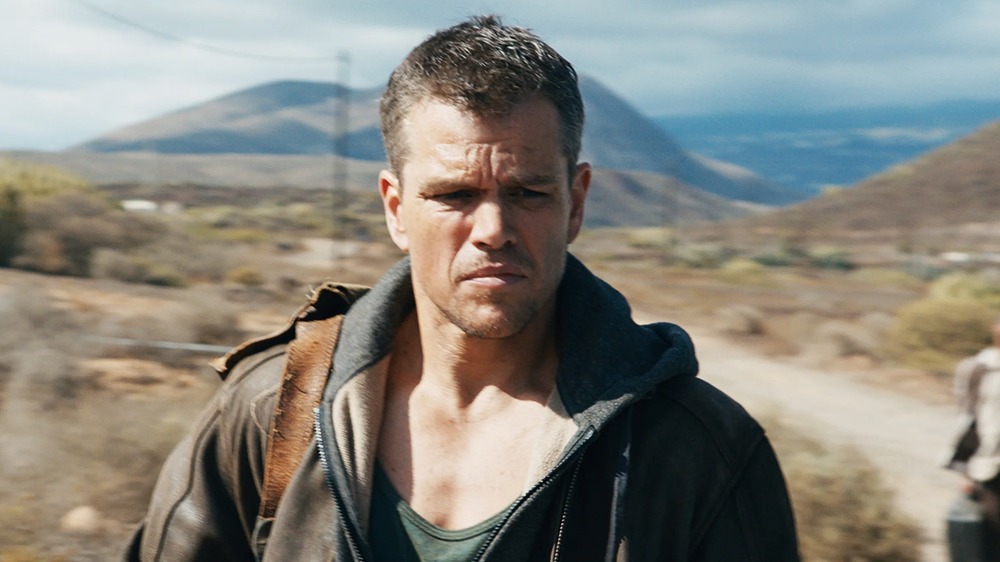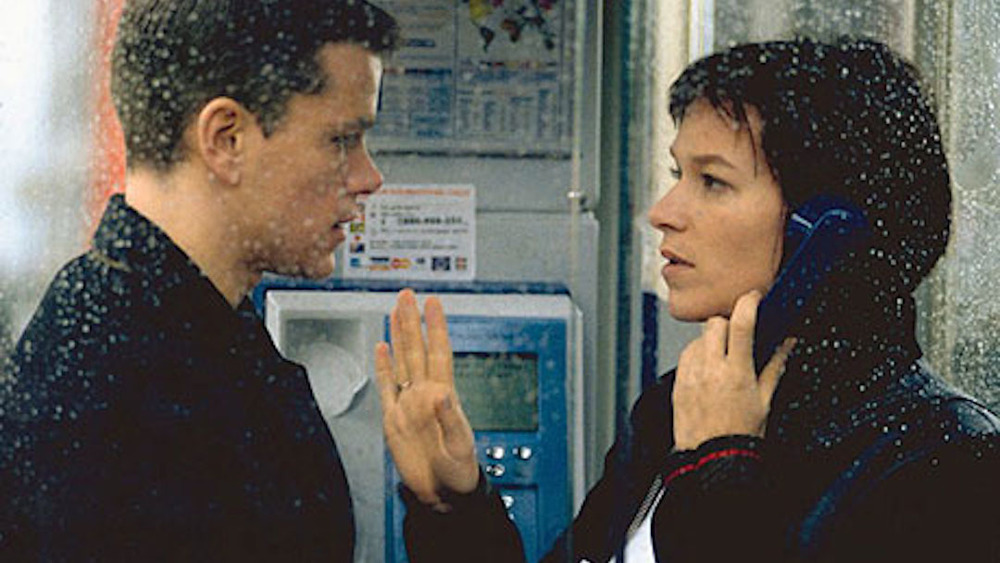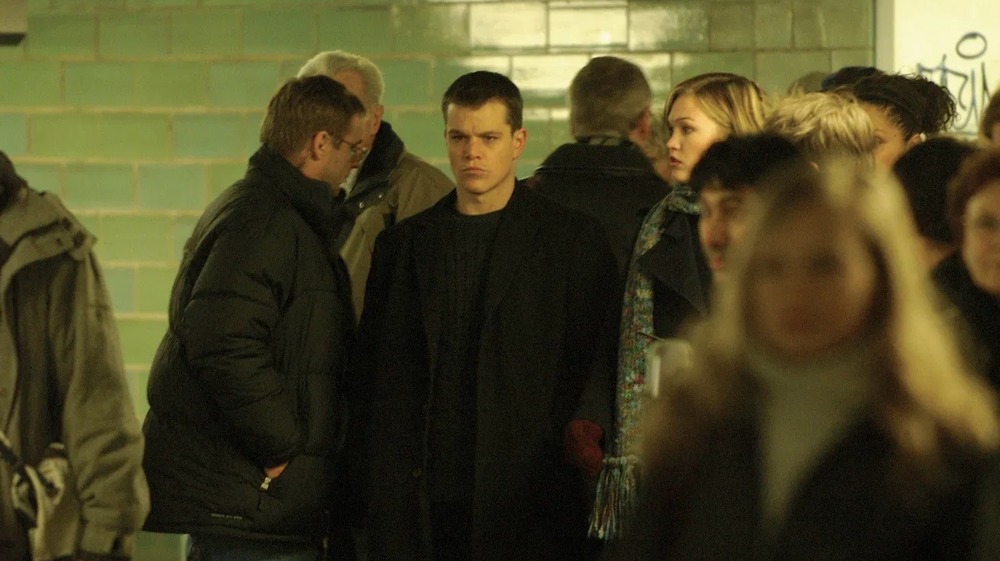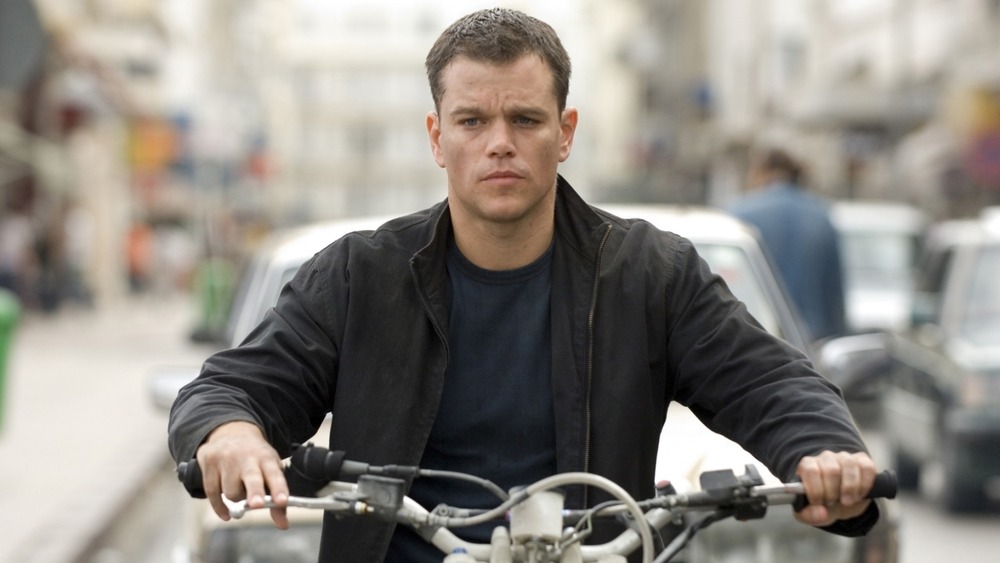Every Bourne Movie Ranked Worst To Best
June, 2002. Little does the world know, but the Academy Award-winning screenwriter behind Good Will Hunting is about to become an action star for the next generation.
That writer was a twenty-something Matt Damon, who'd just netted said Oscar for penning (alongside his pal Ben Affleck) his own breakout role for the lauded drama. On the verge of the big time, Damon spent the next few years beefing up an already impressive resume with solid turns in films like Saving Private Ryan, Rounders, and The Talented Mr. Ripley, leaving many to assume he was dedicated to forging his path solely in prestige pictures. Many were genuinely surprised when Damon claimed the lead in a big-budget espionage flick by the name of The Bourne Identity. That the film was being directed by rising indie star Dough Liman (hot off the success of Swingers and Go) probably helped draw Damon in. That The Bourne Identity was based on a crackling novel by the late-great Robert Ludlum, and set to co-star the likes of indie-minded actors Chris Cooper (American Beauty), Franka Potente (Run Lola Run), and Brian Cox (Rushmore) likely sealed the deal.
Upon release, the action-packed The Bourne Identity proved Damon was ready to step into the role of action star, doing so in a film which boasted as much brains as it did bombast. That savvy mix helped The Bourne Identity become one of the surprise commercial and critical hits of 2002's summer movie season, and promptly helped launch one of the best action franchises of the 2000s.
That franchise is now five films deep, though it's safe to say not every movie in the series was created equally. As such, here's our official worst-to-best ranking of every Bourne movie.
5. The Bourne Legacy
You might've noticed author Robert Ludlum was referred to as "the late-great" in the last frame. That's because the man who conjured the amnesiac super spy Jason Bourne for The Bourne Identity passed away in 2001, having never witnessed his most popular character's big screen breakout. Prior to his death, Ludlum had also only completed three Bourne novels, all of which were adapted for the films Matt Damon appeared in between 2002 and 2007.
With no new legit Bourne tales in play, Damon appeared to be finished with the franchise after 2007's The Bourne Ultimatum. The folks at Universal Pictures weren't quite as done with Bourne, however, which is why they greenlighted the would-be franchise reboot The Bourne Legacy a couple of years later. And as you might've guessed, The Bourne Legacy was indeed the first film in the franchise that didn't actually feature Damon's titular badass. Likewise, it was also the first story in the franchise that didn't originate from Robert Ludlum himself, as it was penned by Eric Van Lustbader under the so-called "Ludlum brand."
Unfortunately, the noticeable absence of both star and scribe proved to be obstacles The Bourne Legacy couldn't overcome.
That's not to say The Bourne Legacy is a bad movie. It's actually a better-than-average action flick that features solid writing and direction from Bourne franchise standout Tony Gilroy, and fantastic performances from stars Jeremy Renner, Rachel Weisz, and Edward Norton. But making a Bourne movie without Bourne is sort of like making a 007 flick without James Bond. Sure, you can do it, but why on Earth would you?
4. Jason Bourne
That being said, given the way things went when Universal brass finally tempted Matt Damon back into the Treadstone cinematic universe, one can't help but wonder if they weren't on the right track in trying to move on. Released nearly 10 years after Bourne dashed off into the unknown to start anew (and Damon himself departed the franchise), 2016's lazily titled Jason Bourne indeed picks up with the super-spy a decade later, and finds him struggling to keep the past in the past.
In fact, when we do catch up with Jason, he's living a tortured nomad's life, wandering the Earth and beating the senses out of muscle-bound nobodies in bare-knuckle brawls to make ends meet. Sure enough, it isn't long before the former Treadstone test subject is pulled back into the dodgy spy world he'd literally fought tooth and nail to escape.
As in Bourne flicks past, the man once again sets out to both clear his name and expose a covert government agency engaged in some very shady doings. And like past Bourne flicks, this one finds Damon appearing alongside an impressive supporting cast including Tommy Lee Jones, Alicia Vikander, Riz Ahmed, and returning co-star Julia Stiles.
At the end of the day, Jason Bourne is a solid enough flick in its own right, boasting some vintage Paul Greengrass stylistic flourishes, and a few killer set-pieces to boot. Damon, too, is in top form for his franchise return. But in the end, Jason Bourne never brings enough to the table to justify its existence, and mostly feels an unnecessary chapter in a franchise well past its prime.
3. The Bourne Identity
The end of a story can be just as important as the beginning. But in the context of would-be Hollywood franchises, the beginning is all that matters, because you won't get to see the end of a franchise if the beginning doesn't hook an audience and impress at the box office.
Released in 2002, The Bourne Identity, thankfully, satisfied on both fronts, pulling well above board critical notes and equally impressive box office numbers, thus ensuring the franchise got off on a very good foot. That's in large thanks to the fact that The Bourne Identity flew largely under radar ahead of its release, with not quite A-list names fronting the action in front of and behind the camera. It helped, as well, that the film was based on fresh characters and stories never adapted in any medium.
Featuring a superstar-making turn from Damon, and assured direction from Doug Liman (then helming the biggest production he'd ever been involved with), The Bourne Identity also proved a first-rate espionage flick about an amnesiac super spy trying to piece his fractured life back together. Most importantly, The Bourne Identity was that rarest of action films which never sacrificed brains for brawn, with Liman and company crafting a sly, puzzle-box of a spy thriller that delivered both in equal measure.
If there is one knock against The Bourne Identity (and that's a big "if"), it's that it often feels too traditional in both look and feel, and therefore never sets itself enough apart from the glut of similar films spotting the spy genre. Thankfully, producers remedied the issue with its follow-up.
2. The Bourne Supremacy
That follow-up film was 2007's The Bourne Supremacy, which not only found a new voice calling "action", but a fresh stylistic approach that would instantly become the franchise's calling card. Like Liman before him, the new director Paul Greengrass was cut from a distinctly indie-film cloth. Prior to his Bourne breakout, Greengrass was probably best known for helming the low budget, vérité-tinged drama Bloody Sunday, who's shaky, handheld style depicted the infamous Irish tragedy in vivid, gritty detail.
It's safe to assume most American moviegoers didn't see Bloody Sunday, though. The producers of the Bourne films did, and they brought Greengrass onboard, believing that gritty, grounded approach was just what their franchise needed to get to the next level. They were right. And when The Bourne Supremacy arrived in theaters in the Summer of 2004, the film proved not just a welcome narrative expansion of the shadowy spy vs. spy world that The Bourne Identity introduced, but a brash, high-style high-wire act who's visceral energy provided for breathless, bone-crushing dramatics barely teased in the original.
Greengrass and company of course benefitted from being able to largely bypass back stories and get right to the action with their Bourne sequel, but even minutes into The Bourne Supremacy, it's clear the director's style is taking not just the franchise, but action cinema itself in a bold new direction. And even if The Bourne Supremacy's shaky-cam theatrics occasionally made it hard to keep up with some of its faster-paced thrills, that stylistic change only bolstered the series' already engrossing, character-driven aesthetic.
1. The Bourne Ultimatum
Greengrass' presence also helped bring the best out of franchise star Matt Damon, who looked more than reinvigorated by The Bourne Supremacy's energy. And if that middle film's electrifying narrative was all about expanding the world of Damon's Jason Bourne and bringing to a boil his battles with those in charge of the Treadstone and Blackbriar ops, The Bourne Ultimatum was about letting things boil over in explosive fashion.
That's just what happens in the presumed trilogy-closer, which sees Bourne — with help from returning characters Pam Landy (Joan Allen) and Nicki Parsons (Julia Stiles) — putting together the final pieces of his CIA puzzle and seemingly leaving that world behind. We now know Bourne didn't stay gone from spy game, but when The Bourne Ultimatum first premiered, it felt like as satisfying an end to the franchise as fans could've hoped for.
It also found Greengrass fine-tuning his handheld skills and bringing into focus the set-pieces some felt were too muddy in The Bourne Supremacy. Damon, too, was better than ever, giving his all to what he surely thought was his last ride in Bourne country. The result is a Bourne film that takes everything that worked from its two predecessors, and folds them into a thrilling tale that ably delivers on the action, drama, and character-first pathos those films promised.
That's exactly what you want the third time around, of course. But it's so rarely achieved, it's well worth recognizing when it does happen. And so, we continue to celebrate The Bourne Ultimatum as the best of the Bourne bunch.
